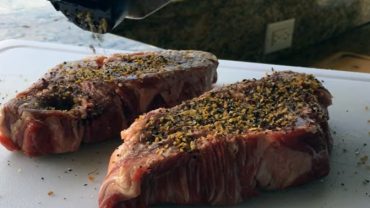How to Juice Oranges
Do You Prefer to Buy a Bottle of Orange Juice From Super Market or Do You Want to Make it at Home?
Preparing freshly extracted orange juice requires a bit more effort than buying a juice box from the supermarket, but the difference in flavor and freshness is unmatched. Fresh orange juice is delicious and sweet – considerably sweeter than store-bought ‘from concentrate’ OJ and free of added sugars and other ‘nasty’ ingredients.
Furthermore, while preparing orange juice at home, you may select whether you want orange juice with or without pulp. Not to mention that it is high in vitamins and has other health advantages. Sugar-free juice has never felt better than fresh from the fruit!
How To Make Orange Juice
With a Juicer
- Peeling the oranges is the first step in preparing them. Then, cut them into smaller pieces to fit into your juicer tube.
- Feed a few at a time into your juicer chute and you’re done.
Using a Blender
- Strip the oranges and, if desired, remove and discard the seeds (if straining the juice, this isn’t essential).
- In a blender, combine the orange segments. If necessary, add a little water to help them blend (1/4 cup should be more than enough to avoid over-watering).
- Blend till the mixture is luscious and pulpy. Then strain the resultant pulpy juice through a sieve or nut milk bag, or leave it as is if you prefer orange juice with pulp (for extra nutrients).
Using A Juicer On The Go
- This probably doesn’t require much explanation. If you have a citrus juicer, cut the fruit in half, set it over the juicer, press down, and squeeze while spinning back and forth to extract as much juice as possible.
Tips To Make Orange Juice
- Before squeezing the orange, roll it over and back on your kitchen surface a few times. The pressure of rolling it tears down the cell walls of the apple, allowing the juice to pour out more easily.
- Because cold fruit gives less juice, warm it quickly before squeezing it. Place the orange in hot water for a few seconds or cook it in the microwave for ten seconds to do this.
- If you don’t have an orange squeezer and must extract the juice by hand, cut the orange into eight slices rather than two halves. Smaller pieces are significantly easier to squeeze and hence give more juice than larger portions.
- Alternatively, you may peel the fruit, removing all of the flesh and placing it in a strainer. Press the orange juice through the sieve with the back of a tablespoon.
Health Benefits Of Orange Juice
Oranges provide a number of significant health advantages. Most people are aware that this tangy fruit is high in Vitamin C. In fact, one medium cup of orange juice has nearly 100 percent of your daily vitamin C need. It does, however, contain a variety of additional vitamins and minerals, including vitamin A, calcium, folate, and iron.
Vitamin C aids in the maintenance of our immune systems, as well as the health of our gums, wound healing, and bone growth (Source). Meanwhile, potassium aids in the prevention of heart disease, strokes, and bone loss. It also aids in blood pressure regulation and lowers the danger of kidney stones.
Folate is important for pregnant women because it lowers the chance of birth abnormalities, and orange juice is one of the greatest natural sources (source). Even better, orange juice is strong in antioxidants, which are wonderful for combating free radicals and guarding against a variety of chronic diseases, as well as having anti-inflammatory qualities.
In reality, one of the few disadvantages of drinking big volumes of orange juice (or any fruit juice) is the number of natural carbohydrates in the juice. As a result, I drink homemade orange juice once or twice a week, storing leftovers to add to smoothies in lesser amounts or defrost later.
Frequently Asked Questions
Q1: How can we store orange juice?
Ans: Orange juice is best enjoyed shortly after it is made. However, you can also keep it in the refrigerator for 2-3 days in a glass bottle or jar that is fitted with a lid.
Q2: What is the pH of orange juice?
Ans: The actual pH ranges from 3.3 to 4.2
Q3: Can we freeze orange juice?
Ans: If you have made more orange juice than required then you can use it within a couple of days. So you can put it in the refrigerator for later use. It is beneficial to keep it in a glass bottle or glass jar and cover it with a lid. Ice cube tray is another good option as it will thaw quickly. When you are ready to use it simply just take it out from the freezer and defrost it.
Q4: Is orange juice alkaline?
Ans: Orange juice is acidic in nature it does naturally transform from acid to alkaline in your body. It is a piece of good news for people who are interested in an alkaline diet for optimal health benefits so they can enjoy it as it does not promote the production of acid in the body.
Q5: How can we squeeze oranges easily?
Ans: Roll the orange over and back a few times on your kitchen counter before squeezing it. The pressure of rolling it breaks down the cell walls of the fruit, making it easier for the juice to flow out.
To Wrap it All Up
For many of us, the morning is a delicate time. We wake up slowly and vulnerable, and everything appears a bit brighter and louder than it should. A coffee maker is a necessary complication to which we have become used, but a juicer is simply too much noise and unnecessary cleanup.
The simple answer would be to simply purchase cartons or bottles of pre-squeezed orange juice and grapefruit juice, but have you seen the prices these days? There’s also the extra useless packaging and, on occasion, added sugar. You’re far better off squeezing your own orange juice, and here’s the best, tidiest, most effective method for doing it.








